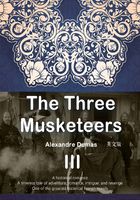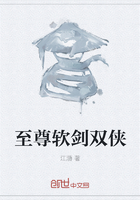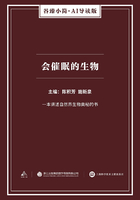Helen had a clear memory of Edward as a toddler sitting in long grass contemplating with rapturous absorption a butterfly on some clover. She could see it now: the waving grasses, the crunchy head of the clover, the butterfly opening and closing its wings, Edward's baby face. Was that when it had all begun? Or later? For alongside that–the next slide in the box, as it were–was another scene featuring an upright, articulate Edward, aged three or four: a man shooting pigeons over a stubble field, the mound of pearly corpses at his side, Edward flinging himself at his mother screaming 'Tell him he mustn't shoot they! Tell him he mustn't kill they because they nice!' Dorothy pushing him impatiently aside: 'Don't be silly, Edward. Birds have to be shot.'
Nowadays the possibilities for distress were limitless, and had been for many a year. Edward's outrage had run from the abuse of donkeys and circus animals and battery hens to vivisection and otter-hunting. There were whales to worry about and ospreys and gorillas and the greater horseshoe bat, orchids and lichens, butterflies and toads. There was no end to it. And it got progressively worse, as far as Helen could see. Fuelled by the glowing testimony of television, in full colour, the scale of man's insensitivity was seen to be as never before. The destruction of South American rain forests, the draining of the Somerset levels, the pollution of Finnish lakes–it was all brought to your hearth now, to furnish sleepless nights for such as Edward. In the village, small boys no longer collected birds' eggs; propaganda in the primary school had seen to that, but five thousand miles away people were exterminating entire ecological systems. Edward's interest in protective organisations had extended from the Royal Society for the Protection of Birds and local naturalists' groups to Greenpeace and the World Wildlife Fund. Greystones had a television for one reason only–that Edward might indulge his passion for wildlife films, though these as often as not brought to his attention some new aspect of the endangered environment and gave him yet another thing to worry about. His rare holidays were spent with like-minded souls, camping on bird-infested islands and living off wild spinach and tins of baked beans. He always came back wonderfully exhilarated, which puzzled Helen. Surely the contemplation of vanishing riches should be dampening rather than uplifting? 'It's knowing that it's still there somewhere,' said Edward.
Helen, getting down before him in the morning, hurried out into the garden with the mousetrap, from which projected a stiffened corpse. Tam followed her, gazing hopefully upwards. When they returned Edward was in the kitchen, making tea. Helen said, 'I forgot to tell you–Mr Carnaby rang. The lawyer. He's going to look in this afternoon.'
'I shan't be here,' said Edward at once. 'Why?' he added.
'That's not clear. He just said he'd like a word.'
'Well, he'll have a much more satisfactory one with you than with me. You can tell me all about it afterwards.' He gave her a propitiating smile and left for work. Habitually, Edward sidestepped all confrontations with the world of affairs; he would have avoided having a bank account if he could, and had great difficulties with the income tax people. He never answered letters that came in typed envelopes, and often did not open them.
'I hope you don't mind me inviting myself here,' said Giles Carnaby. 'I felt that my office would be inappropriate. People can feel at a disadvantage.'
'Supplicants. And all those filing cabinets. Of course,' Helen added hastily, 'you have to have the filing cabinets, I realise that.'
'Quite. And in any case I think it is I who am the supplicant. I'll come straight to the point. I'm feeling somewhat concerned–and embarrassed–about your mother's Will. We were not aware, in our office, that you and your brother had never been informed of the terms of the Will–that this house was to be left to your nephew, with the proviso about your continued occupancy. The fact of the matter is that when my predecessor advised your mother, and the Will was drawn up, he appears from the correspondence to have suggested to her that she should consult all of you–all three of you. It now seems that…um, well, that she didn't.'
'That's right,' said Helen.
'Which is a bit unfortunate. So my predecessor seems to have been under the impression that she had, and proceeded accordingly, and of course it wasn't up to him to inform you, and indeed he would have been acting unprofessionally had he done so on his own initiative.'
'Oh goodness,' said Helen. 'No one's blaming him.' She shifted slightly; the sun was in her eyes, obscuring her view of the visitor. Thick silvery hair and a face beneath that looked younger than the hair. Actually, she thought, my age–give or take a year or two. Nice voice.
'All the same. We feel…concerned. I feel concerned. Not of course that it makes the slightest difference to…to your living arrangements. But obviously there is…there is…'
'An effect,' suggested Helen.
'Precisely. Which could have been avoided.'
'I don't think my mother wanted to avoid it,' said Helen. He looks like a film star, she thought, the one in that film about a man being chased across enormous fields by a plane. What's he called, for heaven's sake? Man with a nice face and thick hair. Bit younger.
'Oh,' said Giles Carnaby. 'I see.'
There was a silence. Got it, thought Helen. Cary Grant. Why on earth should I think of that? I haven't seen a film in years.
Giles Carnaby coughed. He ran a hand through the thick hair. The hand wore a heavy gold ring. Married? wondered Helen. Wedding ring? Some men wear them. Oh, married, presumably. Everyone's married.
'The other rather unfortunate thing is that–and I feel I really have to mention this–the tax advantage is not, to be frank, all that great. My predecessor was–well, his initial enthusiasm for the scheme turned out to be somewhat misplaced though, to be fair to him, he did put this to your mother. But by that time she appears to have got up a certain enthusiasm of her own. At least this is my impression, from the correspondence.' Giles Carnaby looked at the floor, uncomfortable; he stirred the carpet with his foot, ran a hand through the hair again. Don't take on so, thought Helen, please, it's not your fault. It's perfectly all right, honestly. Would you like a glass of sherry? No–heavens, it's only half past four. Tea. Would you like a cup of tea?
'Yes, mother would have,' she said, 'I can imagine.'
'I hope it's not causing family problems, anyway.'
'My sister's rather put out. She'll calm down.'
'The boy himself…'
'He's got green stripes in his hair,' said Helen. 'I don't imagine they mean anything serious. He was always a perfectly nice child.'
Giles Carnaby laughed.
Helen sprang to her feet. 'Would you like a cup of tea?'
'I'd love a cup of tea.'
He followed her into the kitchen, a move she immediately regretted. From time to time she saw Greystones as others must see it; this was one of those occasions. The cracks in the flagged floor. The green mould creeping up the wall by the back door that one just ignored because if you redecorated it simply crept up again within a month or two. The rusting cake tins. The crockery. That sink.
'What a marvellous kitchen,' said Giles Carnaby.
Helen threw him a quick look of suspicion. No, perfectly sincere.
He wandered around, 'I say! Country Life calendar for 1962!'
'It's got some photos of bats that my brother is rather fond of.'
'Doesn't he get confused over dates?'
'He's never very bothered about that sort of thing,' said Helen. She put the kettle on. Biscuits? She opened the Coronation tin and closed it again quickly. You cannot offer slightly mouldy Tea-Time Fancies (Dorothy's favourites) to a visitor. Cake? No cake available.
'Earl Grey!' said Giles Carnaby. 'I haven't had Earl Grey since my wife died. I never know where to get it.'
'Oh,' said Helen. 'Have this one.' She thrust the packet at him, an extraordinary, unaccustomed sunny smile on her face. 'I can get another.'
'I wouldn't dream of it.'
'Please…'
'All right,' said Giles Carnaby. 'But only on condition you come and drink a cup of it with me sometime.'
The kettle boiled. Violently, as always, spewing water all over the stove. Helen leapt for it, this absurd smile still pasted to her face. How tragic. When did she die? Come and drink a cup of it with me sometime.
'You would probably have to make it also,' said Giles Carnaby. 'I'm hopelessly inefficient. Not professionally, of course–I mustn't let you think you've got a dud lawyer. Professionally I am a whizz.'
Don't just stand there, you stupid woman. Put hot water in teapot, cups on tray, and milk in jug. The man will think you're half-witted. Don't look at him like that, either. God knows what he will think.
'Let me carry the tray for you.'
'Thank you,' said Helen.
They returned to the sitting room.
'Oh–I've forgotten the sugar.'
'I don't take it,' said Giles Carnaby. 'My wife always went on at me about getting fat. I am a bit too fat.' He peered down at the front of his trousers. 'Don't you think? No–I'm not asking you, you'll be too polite to do other than prevaricate. Anyway, no sugar. Your delightful time-slip kitchen has completely distracted me from the matter in hand. Is there anything you–or your brother–would like any further advice about?'
Helen racked her brains. Advice? Surely they needed advice? Of course they needed advice; she reviewed, in a flash, the whole unsatisfactory condition of Greystones, of her state of mind, of life itself. How can we stop the drain flooding whenever it rains? Why do I have to feel guilty because my mother has died? How can I achieve a comforting complacency?
'I can't think of anything.'
'Oh dear. What a pity. I don't in the least want to go back to the office. Let's have another cup of tea and perhaps something will spring to mind.' He held his cup out. 'I like this house. It feels so…established. I imagine you've lived here a long time.'
I must remember 'established', thought Helen. Next time Louise is on at us about brightening the place up a bit. Established. 'Nearly thirty years. We came here just after my father died. We'd been living in London and mother always hankered after a village.'
'And it came up to expectations?'
'Of course,' said Helen. 'Villages are red in tooth and claw and my mother was naturally contentious.'
'Really? How interesting. What is it that is being contended about?'
Helen reflected. 'Who owns what, on the whole, and what they are doing with it. Conservation versus making money. All that. Oh–and with side-issues about noise and personal vendettas and things people's children have been up to. There's no end to it.'
'And do you take part? And your brother?'
'Only in a desultory way. Edward not at all, I suppose. We are considered a bit eccentric. And then there's the Britches.'
'Ah. The bit of woodland. What about it?'
Helen explained. Giles Carnaby listened with attention. When she had finished he said, 'Yes. I can see how this would be seen as perverse. Your mother was not acting according to the spirit of the times. She could have made a hundred thousand or so. Was it that she was ecologically minded, like your brother?'
'Not in the least. She just liked saying no to people. She especially liked saying no to Ron Paget.'
'Who?'
'The builder along the road.'
'Ah yes. Does he drive a very affluent-looking red car? I think I saw him coming out as I arrived. You realise it would be perfectly possible to sell the–what's it called?–this land now if you wished?'
'That's out of the question,' said Helen. 'Edward would be terribly upset.'
'Then so long as your finances are healthy there is absolutely no reason why you should. Perhaps that's why your mother didn't include the…the…'
'Britches.'
'Curious name–what does it mean? Why she didn't include the Britches with the house. Maybe she didn't feel confident that your nephew would share the family resistance to material prosperity. Maybe she thought he'd sell it to your builder friend–in the fullness of time.'
'Yes,' said Helen. 'I should imagine that was precisely why. She knew we never would.' She thought of her mother with a flash of respect, successfully pursuing her struggle against Ron Paget from beyond the grave.
'The whole situation is a touch bizarre, but nothing for you to worry about. The lad can't ever evict you, even should he turn out a villain and who's to suppose he will? The green hair tells us nothing, I assume–it's purely totemic and tribal. Anyway, at sixteen, he remains an unknown quantity. I speak from authority–my own son didn't solidify, as it were, until he was well over twenty. And you have no need to sell the land so your brother can go on enjoying his ecology.'
'Good.'
'You're protective about your brother, aren't you? Oh dear–I'm sorry, none of my business. Now I'm exceeding my brief.' He smiled, 'I'm seduced by the ambience–I keep forgetting I'm here in a professional capacity.'
Ambience, thought Helen. Ambience and established. Just you wait, Louise. She smiled back–no, beamed: felt her face fixed in this idiot grin of well-being and response.
'More tea?'
'What did the lawyer say?'
'He said they never realised mother hadn't told us about leaving the house to Phil and it didn't save much tax anyway. And he liked the kitchen.'
'What was he like?'
'Do you remember that old film with a man being chased across an enormous field by an aeroplane?'
'No.'
'Oh, never mind,' said Helen. 'Nice, anyway. Very nice, actually.'
Protective.
That, yes. One had no choice, really. Given mother. Given Edward.
She had taken them, aged maybe four and seven, to someone else's birthday party. Children skittering all over polished parquet floors: children more practised and assured than they were. Musical chairs. Hunt the slipper. Balloons. Attendant nannies. They did not have a nanny. Mothers gathered in a drawing room.
She had tugged at her mother's sleeve, whispering, 'Edward's wet himself–what shall we do?'
'I'm talking to Mrs Carew,' said her mother. 'Be quiet, Helen. If you've got something to say wait till I've finished.'
'But mother…'
Her mother turned on her a scalding gaze. 'Don't interrupt, Helen. And go away, please. Play with the others.'
Helen led Edward to the bathroom. His pants dropped, damply. Once there she took his things off. His socks, too, were sodden. She tried to dry them on the bathmat. Edward simply stood, compliantly lifting a foot when required. Once, he said 'Will there be crackers for tea?' She wiped him down with lavatory paper and put his pants back on; they were still wet but there was nothing else for it. She stuffed his underpants and socks behind the Carews' radiator. Then she washed her hands and his and led him downstairs again. He was talking once more about crackers. All she could think of was whether anyone would notice that he had no socks on.
He was sent to boarding school at nine. It was inevitable. 'Don't be silly, Helen,' said her mother. 'Of course he won't hate it. He can play football and all that sort of thing. What do you mean–he doesn't like football? All boys like football. And there's no point in going on at Daddy about it. Daddy agrees with me.'
Or so she said. And so he appeared to do–backing into the study, newspaper in hand, with deprecating gesture. Distant, hazy, dead Daddy. Long since drowned out by other voices, other opinions; bleached now to a faded outline, a few mannerisms, a vague remembered preference for anchovy paste as opposed to jam. Could a lifetime be reduced to that?
But in the event Edward, who might have been expected to suffer deeply and conventionally at school, in fact went through it in some kind of trance. He retreated so far into himself, became so withdrawn and unresponsive, that in another age he would probably have been classified as subnormal. As it was, he was simply left alone to operate some private sensual filter system, which admitted air and nourishment but excluded the grinding scatological barbarity of his peers and the ugly monotony of the nine years' imprisonment to which he was condemned. He must also have admitted instruction, since he passed examinations–though only just. He was no good at games, but survived again by a system of practised self-effacement–dreaming long afternoons away in the long grass of the cricket pitch at deep square leg, trotting helpfully around on the wing at football. From time to time he was bullied, but his anonymity was so expert that after a while even the bullies lost interest. There is no fun in negative response; screams of pain are essential.
'How did he get into the kitchen anyway?' said Edward. 'Lawyers don't go into kitchens. Didn't you receive him in the sitting room?'
'One thing led to another, somehow.'
'I see.' He was busy fiddling with the knobs on the television set. It was an ancient model and required much coaxing; Edward's favourite programme was due in five minutes. 'Do you think mother did it all on purpose? The Will, and Phil and everything.'
'I suppose so,' said Helen.
The television screen shuddered into life and produced a delicate Seurat landscape composed of coloured dots, with just discernible trees and moving figures. 'Blast!' said Edward. He hammered the side of the set and the dots turned from green to red. He turned to look at her for a moment: 'There's really no point in us getting worked up about it now. About her, I mean.'
'Absolutely none.'
'I suppose she couldn't bear the thought of not dictating things any more. It's bad enough for anyone to know they're going to die eventually but I suppose it's even worse for people like mother. Like medieval kings. Poor mother. We never realised what she was going through, really.'
'Hmn. Maybe not.'
Upstairs, a window slammed. Involuntarily, they both leapt to their feet. And sat down again sheepishly. 'God!' said Edward. 'Are we ever going to get used to it?'
'Eventually, I imagine.'
Edward hit the other side of the television set and a head and shoulders shot into clarity, talking about pesticides. He sighed and slumped into the armchair.
The programme, that evening, dealt among other things with the Barnacle geese of the Arctic. The Barnacle geese migrate north in the breeding seasons to a wide river valley bordered by low mountains. In order to preserve their young from the marauding foxes of the plain the geese nest two or three hundred feet up a mountain cliff. As soon as the young are fledged it becomes necessary to get them down off these crags to the feeding grounds below. To this end, the parents lead the chirping fluffy bundles across the rocks until they reach the precipitous edge. Then the adult birds, squawking anxiously, launch themselves into the air and circle around, calling the babies.
The camera dwelt unflinchingly on the ensuing horror as, one by one, the pathetically cheeping goslings hurled themselves over the edge. It lingered on the plunging balls of fluff as, embryonic wings outstretched, small feet flailing, they plunged to the rocks below. There, a fox trotted up and down sniffing. The parents rushed around calling frantically. It came as a surprise to learn that about fifty percent of the chicks survive this charming natural arrangement.
Edward and Helen watched in appalled silence. The programme ended with some stunning tour de force photography–a blood red Arctic sun hanging low in an orange sky above an exquisite wilderness in which wolves and caribou, foxes and geese were left undisturbed to do what they liked to one another.
Edward, after that, found it difficult to sleep. In his head, the goslings churned around with other, more personal, matters. The peculiarly savage twist to the distress he felt about the goslings was that there was nowhere to direct one's outrage. It was easier, in a way, to lie awake boiling about the barbarities of Canadian seal-slaughterers or the ecological insensitivity of English farmers. There was no one and nothing to blame for the goslings. There was nothing to join, no one to whom to send a contribution, no letter to be written to a newspaper.
In the darkness at the end of the bed Tam snored in loud staccato bursts; from time to time he changed position in his sleep and tried to shove Edward's foot out of the way. He was a dog entirely devoted to the pursuit of self-interest; Edward and Helen, discussing this, always came up against the intractable point that presumably there could be no other kind of dog, or indeed of animal. Animals always act out of self-interest, unless in the interests of their young, and that too can presumably be defined as self-interest in a genetic sense.
Tam, Edward suspected, would not even act in the interests of his young, should he have any. Since he was rising ten and had never given more than token attention to the village bitches this was unlikely. Edward loved Tam, in the complex and distorted way in which people can be said to love animals, though he had loved other dogs more. Tam was one of a series; he had predecessors and would no doubt have successors, and Edward sometimes thought of the others in the way in which people review other children or other spouses. He also knew quite well that these were the terms in which he thought of them, and why.
He had never shared his bed with a person. He had come near to it, once or twice, but a long time ago. Even those occasions, now, were dimmed; they were rosier, too, in recollection than in cold reality. He flinched from the thought of the people involved. What was left was the memory of something else: his own feelings.
He had a vivid, and much earlier, memory of the first occasion on which he had realised that feelings were something to which a word was attached, and that they were recognised by others. He was quite small–his head did not reach above the windowsill below which he stood–and through the open window came Helen's voice, high-pitched in indignation, crying out to their mother, 'You've hurt his feelings! Why did you say that!' And three things fused within his head: Dorothy's derision of his ineptitude at something, what he felt in consequence, and the fact that Helen understood how he felt even though it hadn't happened to her. Now that he knew what they were called, he realised also that he had them all the time, with kaleidoscopic intensity, and hence that others must do so too.
Their mother also, presumably, though in her case expressions of feeling more usually took the form of anger. Dorothy found outbursts of rage exhilarating; she would descend the next morning blithe and invigorated, while everyone else crawled around punch-drunk from emotion. Louise was the only one who was a match for her. She learned in infancy to throw spirited tantrums in response to her mother's anger, holding her breath and going blue in the face in a way that alarmed even Dorothy, who held that most childish ailments were put on. The tantrums were, of course, up to a point, but they were impressive all the same. When too old for tantrums, Louise resorted to argument and shouting matches. And, eventually, she left.
Helen and Edward, on the other hand, withdrew. Once they grew beyond being afraid of Dorothy's temper, they dealt with it by evasion; they simply got out of the way whenever she brewed up. Living with her, they learned to treat her as the weather–elemental and inescapable.
Feelings also may be inescapable, Edward learned, but there are ways of cheating them. Of diverting them. Of hiding from them. Your own howls can be drowned out by the howls of the rest of the world, if you set about it properly. If you are naturally self-deprecating, and exceptionally under-endowed with egotism, the process comes almost naturally. Eventually you are exercised only about the atrocities around. Or so it can seem.
Helen also thought about the Barnacle geese that night, though with less intensity. The image of the plunging chicks lurked in her head, nagging, but it was other matters that kept her awake. Feelings, of course–those maddening unquenchable onsets of disease. She reviewed Giles Carnaby's visit and was aware of having existed, during that hour or so, on two different planes; at one level she had listened to Giles Carnaby and talked to Giles Carnaby, at some other level she had undergone strange physical and emotional experiences. She had gone hot and cold; she had felt slightly dizzy; she had been unable to take her eyes off him. All this while discussing her mother's testamentary arrangements.
She had not felt thus for roughly fifteen years and had not expected to do so ever again.
Edward–in so far as he thought about the matter–had always assumed that his sister was a virgin. He was wrong. Other people's sexual lives are of course deeply mysterious; even so, Edward's assumption was understandable. To his knowledge, she had had few abiding relationships with men and not many transient ones either. It was lack of opportunity as well as his knowledge of her character that made virginity seem likely.
In fact, Helen had first gone to bed with a man when she was twenty-three. She found the whole performance embarrassing but distinctly pleasurable. She quite liked him but was not in love with him, and recognised the experience as a purely sexual one. The man made vague suggestions about keeping in touch, and then vanished. Helen settled down wretchedly to await the outcome; she doubted if the correct precautions had been taken and knew that copulation leads, more often than not, to pregnancy. She told no one and sat it out stoically. When, on the seventeenth day, her period arrived the relief and elation she felt were like a religious experience. Indeed, she went down on her knees beside her mother in church that Sunday and thanked the Lord, furtively and guiltily. She did not say to Him that she wouldn't do it again because she did not expect the opportunity to arise. Nor did it, for quite a while.
Dorothy's attitude to sex was one of withering contempt. She did not disapprove, she despised. The subject brought out in her a particular look–an expression of obstinate rejection, a clamping of the mouth, a hardening of the eye. Each time Helen saw it she thought of her father, and shivered for him.
Louise, at sixteen, discovered boys. The row with Dorothy and Louise's flight to London and to art school was about sex rather more than about educational opportunity. Dorothy had opened the front door at the wrong moment late one evening and discovered Louise on the top step, in a fervent embrace with the publican's son. The ensuing commotion kept everyone up till the small hours of the morning. 'You're disgusting!' bawled Dorothy. 'You're a revolting little trollop, do you hear me?' And Louise, incoherent and weeping but primed with righteous outrage, shouted back that Dorothy didn't own her, that other people's mothers didn't…that every other teenager in the country…that this wasn't the nineteenth century, for heaven's sake!
Louise and Dorothy kept up a spasmodic battle about Louise's sex-life until Louise married Tim, at which point Dorothy lost interest. Helen and Edward were an altogether simpler matter. So far as Dorothy was concerned they had nothing to do with that sort of thing; they weren't 'silly' like Louise. When Helen struck up friendships with men Dorothy moved into the offensive with a strategy of disparagement: 'That poor young man–one wonders what he can possibly fetch up doing, with that voice and those looks.' She was given to assessing people in terms of appearance. Girls were classified as pretty girls, nice girls and clever girls. Pretty was best; clever was worst. One could not help noting that Dorothy herself, in youth, could not have fallen into any of these categories, but then Dorothy always saw herself as apart. Not in any sense of superiority: simply as apart. There was her, and there was the rest of the world.
At first Helen was upset by Dorothy's disparagement: 'Just as well you're prepared to put up with that chap's acne–no one else would, I imagine.' 'Why hasn't anyone ever told him about his teeth?' Then she ceased to bring her friends home, unless it was unavoidable. Eventually what Dorothy said no longer mattered. During the long-ago weeks and months when it had seemed possible that she might be on the brink of a permanent alliance she explained to the man in question about her mother, and he appeared to understand. As it turned out, she need not have bothered.
The hall clock struck four. Edward and Helen, apart and awake, heard it. Edward remembered that he had to coach the remedial French class in a few hours' time, always a taxing business; he turned over and made a resolute attempt to sleep. Helen felt an odd little tingle of interest at the approach of the new day: another unusual sensation. In the Britches a cat yowled.















